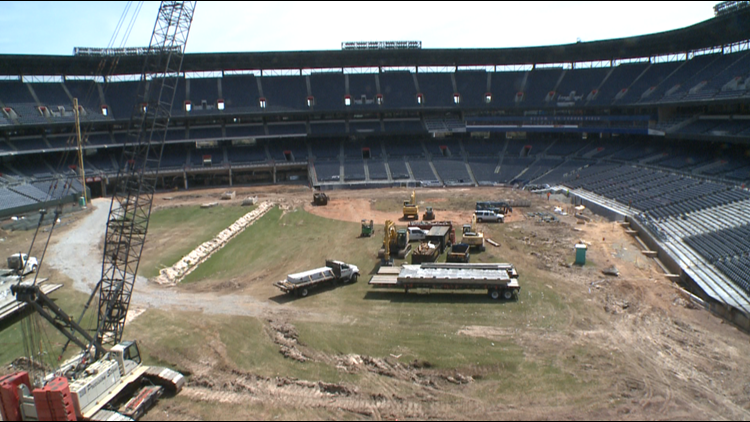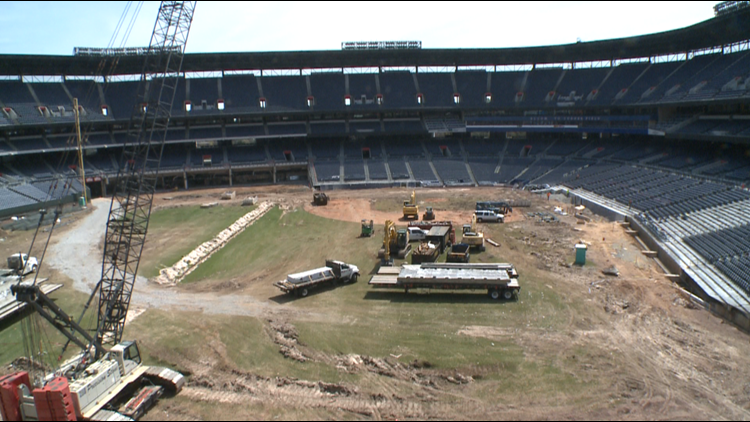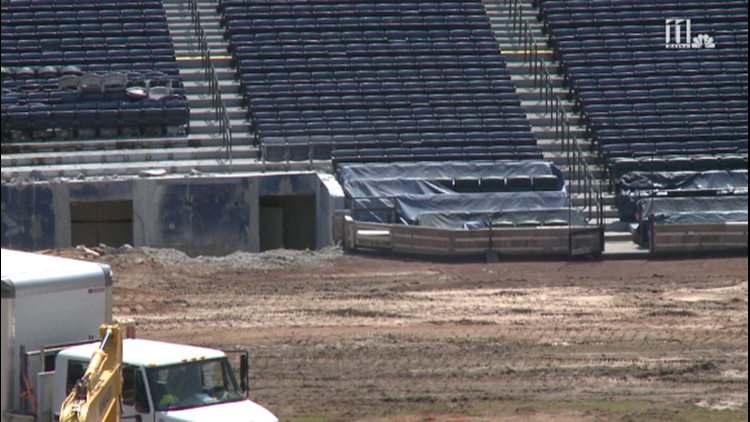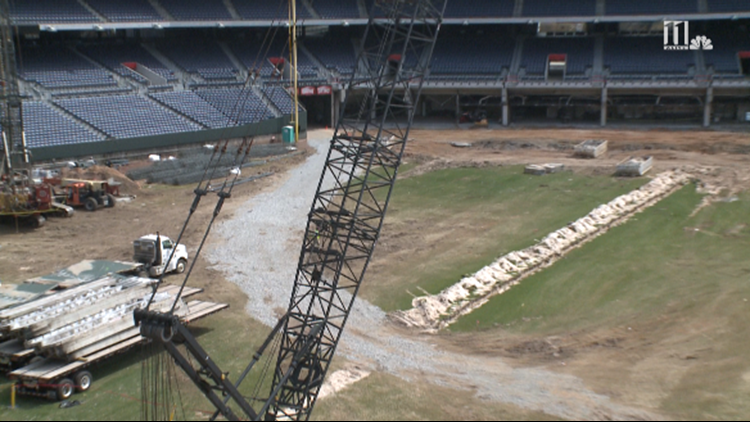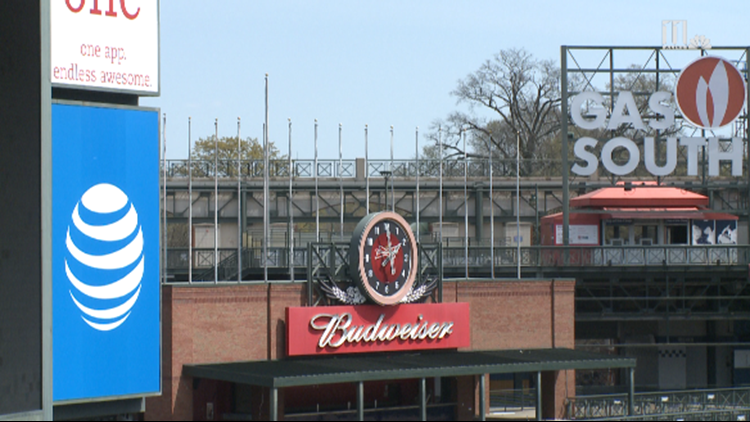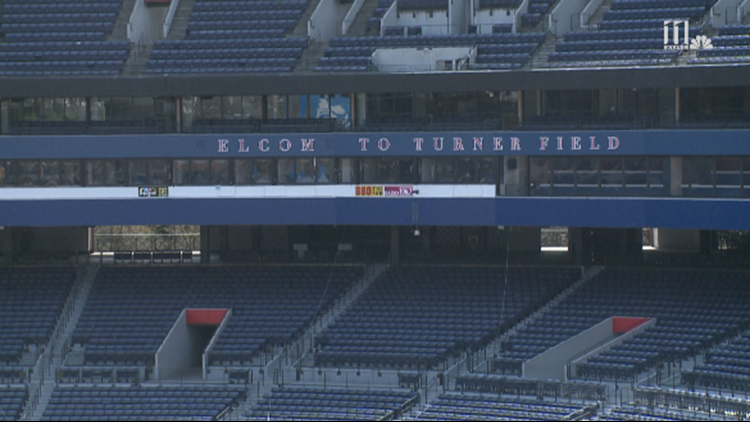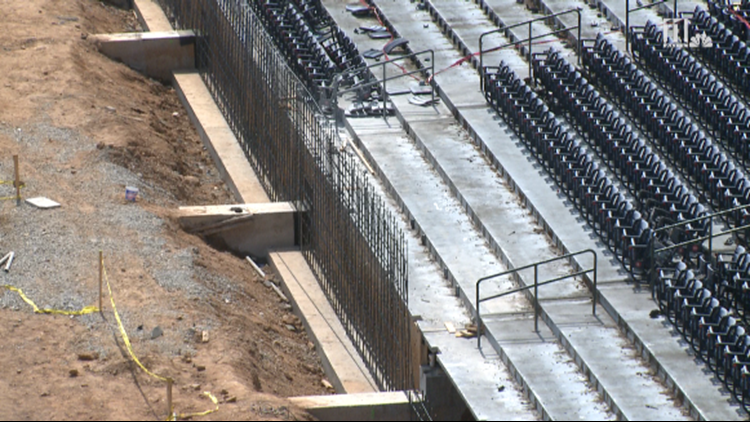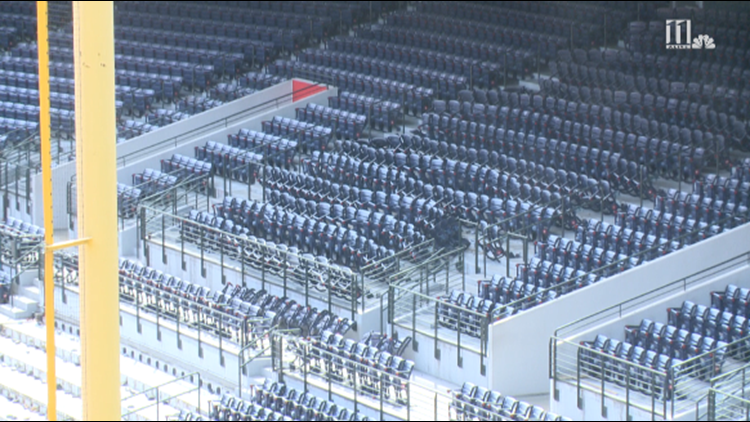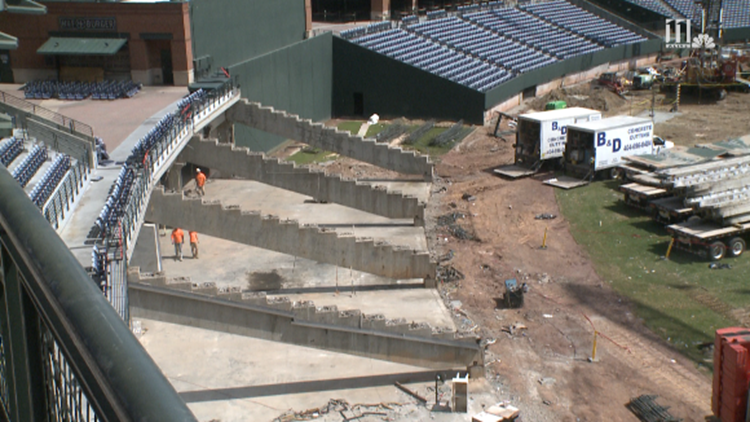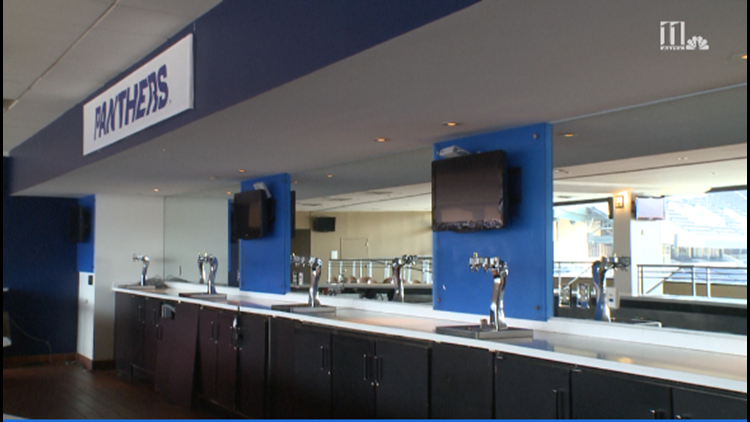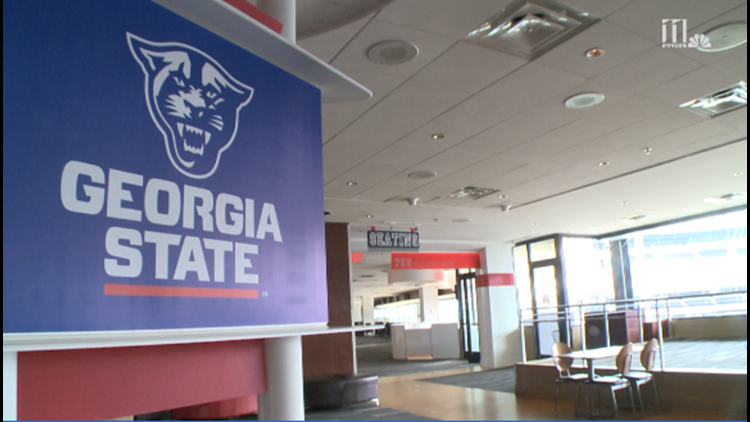ATLANTA -- Turner Field is a thing of the past.
While a lot of the old signage is still up, there's a pretty prominent reminder on the back of the scoreboard what is to come: college football.
Georgia State began construction on the former home of the Atlanta Braves in February. The university is retrofitting the baseball stadium into a football stadium for the Panthers. Already, that's required entire sections of seats to be demolished, like those near the right field foul line to make space for an end zone. Construction workers have knocked down the outfield wall and seats, with plans to restore some of them.
"The job that's being done is incredible," Athletic Director Charlie Cobb told 11Alive on Friday. "Each and every time I walk in, I see something new being done."
Georgia State is currently in phase one of its plan for the stadium, which means downsizing it to 23,000 seats while ultimately getting the stadium to a usable state to play football in. Phase one will be completed prior to the team's home opener on Aug. 31 against Tennessee State.
Phase two will be the following year and includes building out the rest of the stadium and adding more seats. But the plans are evolving, according to Cobb. The stadium is just part of a larger $300 million project with the developer, Carter, to turn the 68-acre area into a mixed-use development. Cobb said they are on time and on budget.
"This whole facility will probably evolve for the next 5, 10 years to what it will become long term. What may be here today is not tomorrow, and that's strictly because of what's here in the stadium," Cobb said.
There is a chance Georgia State could decide to knock out some of the right field stands and build something in the stadium like classroom space, dorms, a market or an indoor practice facility. The possibilities are endless, and Georgia State is still exploring them while examining the current infrastructure.
The Braves didn't take everything with them when they vacated the stadium to leave for their new home in Cobb County, SunTrust Park. So as the construction process continues, Georgia State finds pieces of history-- including from the Olympics-- from time to time. Every time something is found, the university must figure out how it wants to feature it in the stadium.
While the goal is to make the stadium feel like the home of the Panthers, the plan is not to entirely wipe any memory of the Braves or Olympics away.
"We plan on doing some unique things capturing the history of the stadium, but also creating a football facility that speaks to Georgia State," Cobb said, adding what they hope to accomplish might surprise a few people but would not elaborate.
Georgia State only acquired the stadium in January after purchasing it for $22.8 million. So while the plans have been in place for some time, Georgia State only just began putting them in motion. That means some of the game day amenities are still being figured out.
For example, will there continue to be alcohol at Georgia State games like there was when the Panthers played at the Georgia Dome? It's something they are looking into, in addition to other amenities that are now possible in a stadium they can call their own. But they are just now getting to explore those possibilities.
The Panthers used to spend roughly $100,000 per event at the Georgia Dome while not making any money off of things like concessions. Now, they'll control everything, including the naming rights to the stadium which has yet to be sold, but will likely bring in millions.
But the most important source of revenue: ticket sales.
Georgia State is ahead of schedule when it comes to season ticket sales and has only just begun selling them.
"We expect to set records," Cobb said about tickets.
Winning will help future ticket sales, and while the Panthers went to their first bowl game in 2015, last season they only racked up three wins. New head coach Shawn Elliott was hired to be the head coach to lead the program into its new era.
"I tip my hat to what coach Curry and Miles and what the staff did to get us where we are now. This is obviously a transformational piece for us and what Coach Elliott and his staff can do. We need to win some games, we need to be competitive. We feel like where we are at in the stage of the development of the program, we're there," Cobb said.
The stadium's effects on recruiting have already been felt.
"We've seen the benefit from the Braves playing here for 20 years. Our coaches went recruiting this fall, especially kids who are familiar with downtown, most of them have been to a Braves game, their parents have been with them for a Braves game. So, it answered the question of familiarity. So as we do the conversion and turn it into a football facility, give it a new name, it only helps us," Cobb said.
Over the years, Georgia State has gradually been expanding and taking over Downtown Atlanta. The expansion continues, not only with the football stadium, but also with the 68 acres of land that will include a new baseball stadium, classrooms, dorms and a mixed-use development planned by Carter.
It's the next chapter for Georgia State, and the next chapter for a venue that has seen people come and go.
"One of the stories we want to tell is the fact that it went from being an Olympic venue, to the home of the Braves, and now to the home of Georgia State," Cobb said. "I think we can write that third chapter."


